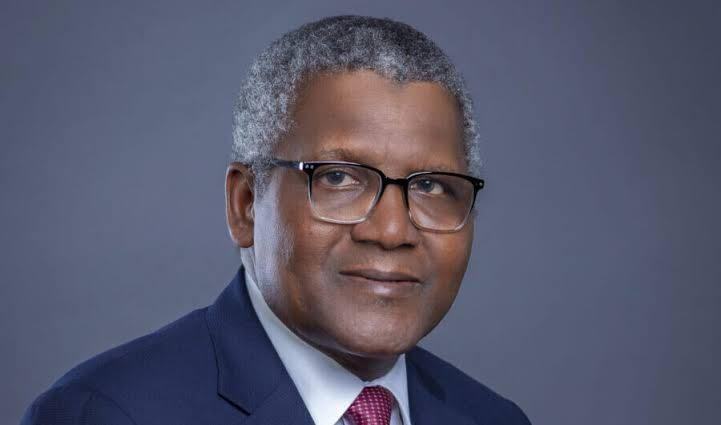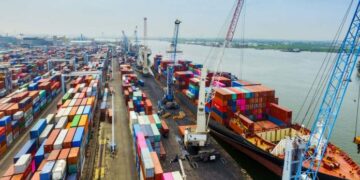Dangote Petroleum Refinery has invested over N720 billion to implement its landmark initiative of deploying 4,000 Compressed Natural Gas (CNG)-powered trucks for the nationwide distribution of petroleum products, which is expected to save Nigerians over N1.7 trillion annually.
This bold step will see the privately-owned refinery absorb over N1.07 trillion annually in fuel distribution costs. The initiative is also poised to significantly benefit over 42 million Micro, Small and Medium Enterprises (MSMEs) by reducing energy costs and enhancing profitability.
The initiative, which eliminates transportation costs for fuel marketers and large-scale consumers, is expected to help reduce pump prices and inflation. From 15 August, Dangote will begin the direct delivery of petrol and diesel to filling stations, industrial facilities, and other high-volume consumers.
According to a statement from the Refinery, it aims to meet Nigeria’s daily consumption of 65 million litres of refined petroleum products. This includes 45 million litres of Premium Motor Spirit (PMS), 15 million litres of diesel, and 5 million litres of aviation fuel.
With the average logistics cost estimated at N45 per litre, the refinery will cover over N1.07trn annually in free distribution expenses.
Dangote Group is investing N720 billion in the acquisition of 4,000 CNG-powered trucks as well as the establishment of nationwide CNG ‘mother and daughter’ stations, among other infrastructure to implement the free distribution initiative.
The Company said “this strategic programme forms part of Dangote’s broader commitment to eliminating logistics bottlenecks, enhancing energy efficiency, promoting environmental sustainability, and supporting Nigeria’s economic development. The company noted that lower fuel distribution costs will help reduce production costs, ease inflationary pressures, and stimulate economic growth.”
The Refinery also emphasised that this programme would help curb cross-border smuggling of petroleum products and support a more efficient and environmentally friendly distribution system.
The Presidency described the initiative as a pivotal moment in the federal government’s push to mainstream gas-powered transportation.
Commercial coordinator of the Presidential Compressed Natural Gas Initiative (PCNGI), Tosin Coker, praised the move as a strong vote of confidence in Nigeria’s gas-fueled future.
“Dangote Group’s acquisition of 4,000 CNG trucks is not only impressive in scale but also highly strategic. It signals to the market that CNG is no longer a distant prospect but a current, practical solution to high energy costs, emissions, and supply chain challenges.
PCNGI regards this as a milestone achievement in our efforts to accelerate gas-powered transport adoption,” he said.
The Independent Petroleum Marketers Association of Nigeria (IPMAN) commended the development, calling it a timely resolution to longstanding challenges in the downstream sector.
National publicity secretary, IPMAN, Chinedu Ukadike, stated that the new model would significantly reduce logistical burdens for independent marketers by delivering more affordable fuel directly to filling stations.
Development economist and policy analyst, Professor Ken Ife, said the initiative would drive down the price of PMS and yield widespread benefits for Nigerians.
CEO, Financial Derivatives Company, Bismarck Rewane, dismissed concerns about the refinery becoming a monopoly, arguing that inefficiencies in the sector have been systemic and long-standing.
He added that the scheme would help curb the parasitic role traditionally played by middlemen.
Energy expert and co-founder of Dairy Hills, Kelvin Emmanuel, said Dangote’s decision to absorb logistics costs marks a turning point that could finally allow Nigerians to enjoy the benefits of local refining.
Energy analyst Ibukun Phillips described the move as “revolutionary”, suggesting it could reshape Nigeria’s energy sector by improving affordability and access, particularly in rural communities.
“Rural consumers, who typically pay more despite earning less, stand to benefit immensely. This could also revive abandoned filling stations and promote equitable distribution,” she explained.











